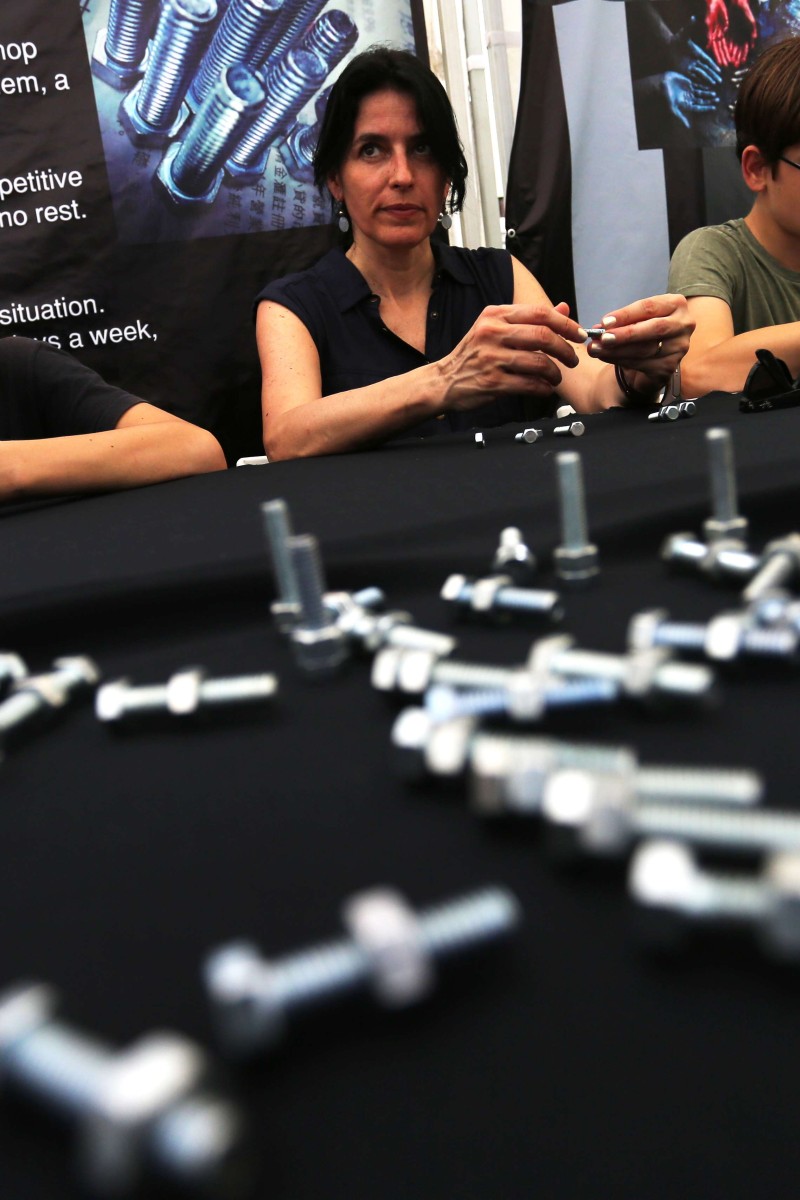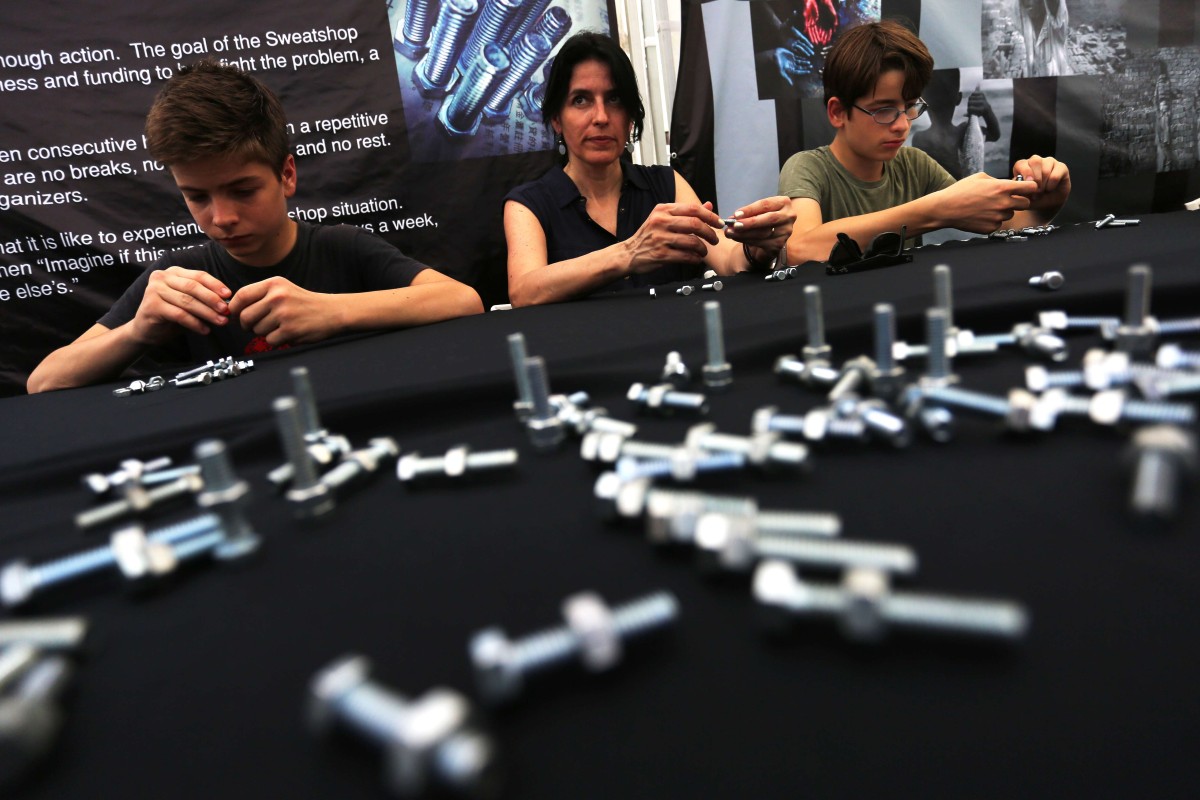
Hong Kong needs to come up with a plan to end modern-day slavery
 The sweatshop challenge at the One People One City 2016 Multi Cultural Festival. Modern slavery is not only whips and chains. Sweatshops, forced labour and wage slavery are the new face of slavery.
The sweatshop challenge at the One People One City 2016 Multi Cultural Festival. Modern slavery is not only whips and chains. Sweatshops, forced labour and wage slavery are the new face of slavery.Sometimes, we have to wonder whether we’re living in Hong Kong, the bustling hub of commerce and finance, or Hong Kong, the modern day slavery capital, which ranks alongside North Korea and Iran as one of the worst places in the world at dealing with modern slavery.
Research done by the Justice Centre, a non-profit human rights organisation working to protect asylum seekers in Hong Kong, shows that 17 per cent – a whopping one in six – of migrant workers in the territory display all indicators required to be counted as forced labourers.
There are around 29,500 refugees, slaves, or forced labourers in Hong Kong – that is, one out of 250 residents living here – placing the city among countries such as India, which has the most people living in modern slavery, Equatorial Guinea, and Eritrea. However, compared to the other low-ranking countries, Hong Kong is the only one described as “wealthy and stable”, according to the Global Slavery Index.While the world may see Hong Kong as a gleaming metropolis where anything is possible, for thousands of people, life here means gruelling hours of forced labour, low pay, and living in squalor, with no end in sight.
This is because Hong Kong lacks the basic tenets of an effective anti-slavery response – comprehensive legislation and a detailed government plan. It’s not only locally, however, that Hong Kong falls short. The central government decided that one of the Palermo protocols – a series of UN treaties that aims to eradicate human trafficking and the manufacture of illegal arms – will not apply to Hong Kong, dealing another blow to the thousands of refugees that arrive on our shores every year.
So what can we do? While there are many non-government organisations trying to bring positive change, such as the Justice Centre and Running To Stop The Traffik, they need government help.
Perhaps the Legislative Council could take a leaf out of Britain’s book, and enact a law similar to the UK’s Modern Slavery Act of 2015, which came with increases in funds and resources. The Hong Kong government made a positive start recently by increasing inspections of employment agencies from 1,300 per year to 1,800.
However, true eradication of modern-day slavery requires a concrete action plan as well as ironclad legislation. Then the refugees in Hong Kong will be truly free.